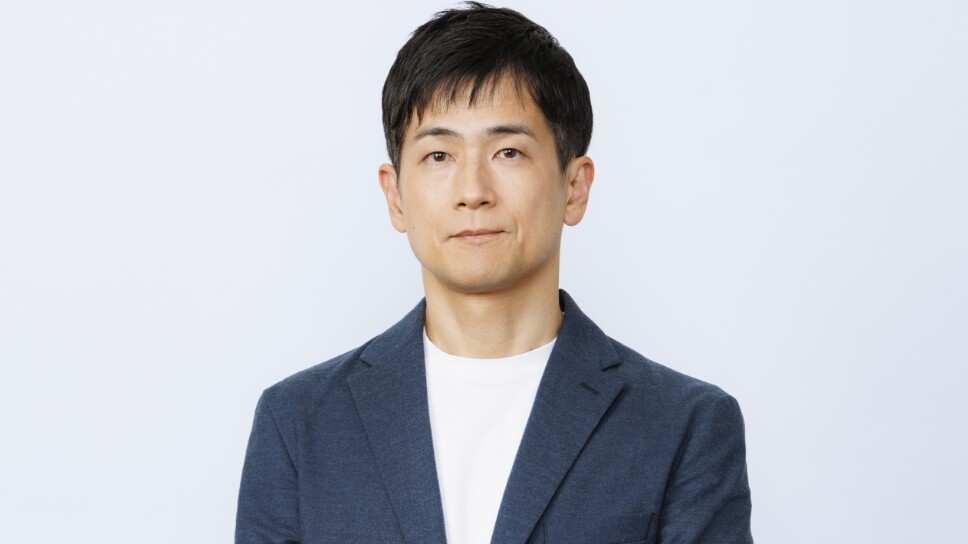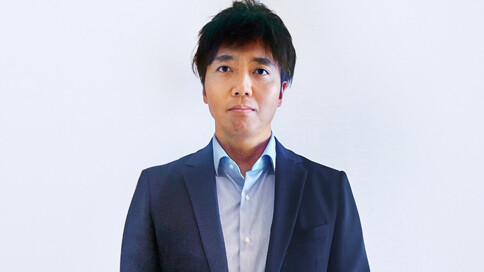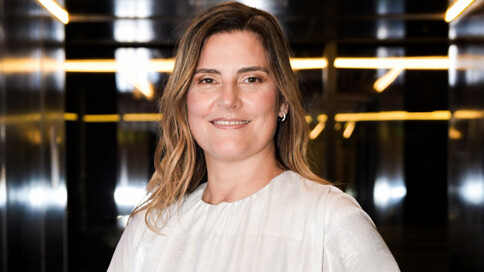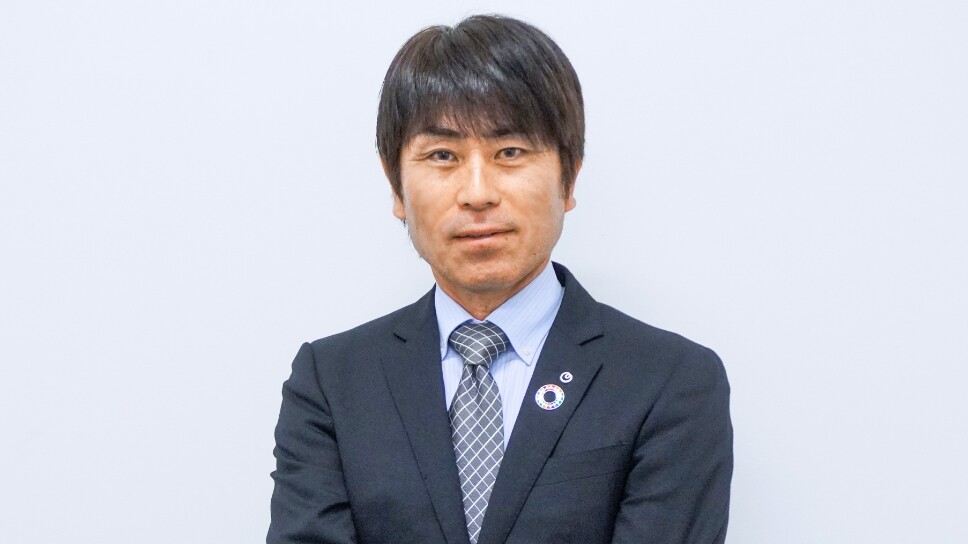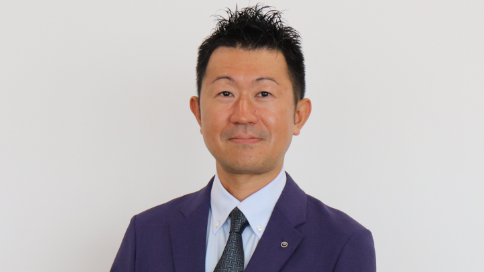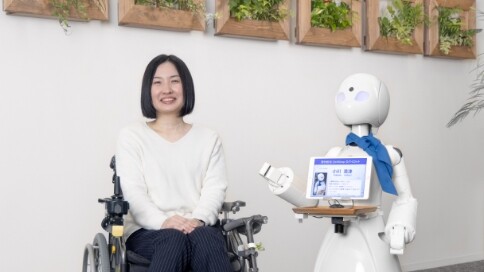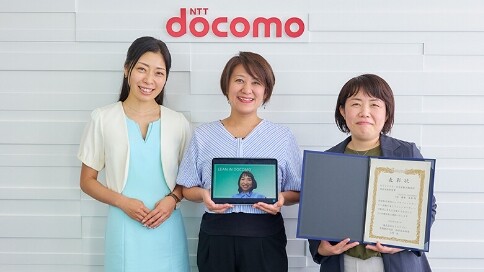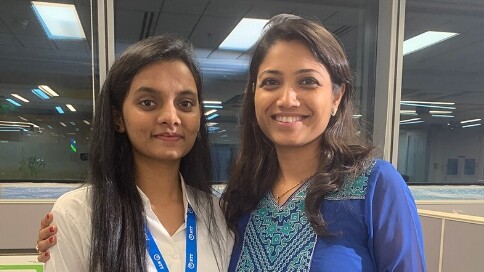Microsoft ends support for Internet Explorer on June 16, 2022.
We recommend using one of the browsers listed below.
- Microsoft Edge(Latest version)
- Mozilla Firefox(Latest version)
- Google Chrome(Latest version)
- Apple Safari(Latest version)
Please contact your browser provider for download and installation instructions.
NTT's Sustainability Efforts
Regional farming culture drawn together by 'NTT-grown' tomatoes
NTT EAST (At the time of interview)
Masahiro Nakanishi

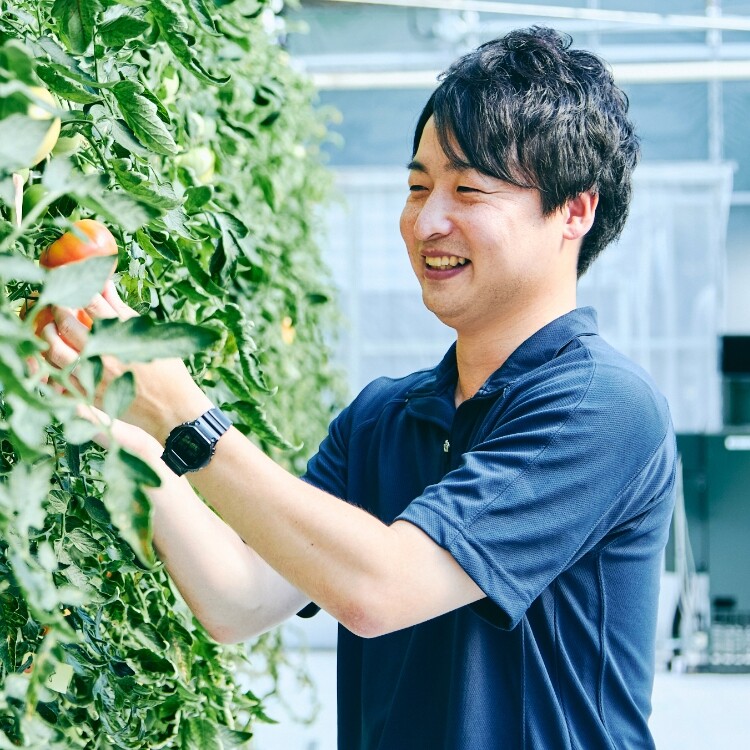
Specialist in agriculture DX under the topic of a "sustainable recycling-oriented society"
In a residential suburb of Chofu City in Tokyo is a state-of-the-art vinyl greenhouse operated by NTTe-City Labo* (NTT Central Training Center). Entering the greenhouse reveals rows upon rows of tomato plants before our eyes. "NTT-grown" tomatoes available in the market are grown by NTT AgriTechnology cultivation staff and harvested here.
"These tomatoes are just so sweet. They have a high reputation amongst consumers and local agricultural cooperatives."
Explaining this with a smile is Mr. Nakanishi of NTT EAST. He branched out into the realm of agricultural DX following his experiences working in divisions in charge of developing IoT services. He was involved in establishing NTT AgriTechnology, a company that specializes in agriculture & ICT, and today he is an "agricultural worker" through and through.
NTT EAST runs various projects with the aim to achieve a local, sustainable recycling-oriented society. Providing support for smart agriculture by utilizing AI, IoT, drones and other ICT is one of these projects.
"While agriculture makes up the core industry in many regions, the reality is that the majority of agricultural produce relies on imports. These days there is a greater awareness of the importance of raising the food self-sufficiency rate, especially given the risk of disruptions in the supply chain, and this has been a challenge for a long time. There are a range of underlying issues here, like the aging population and shortage of agricultural workers. I embarked on my research by wondering if we are able to find a solution for such issues as an IT operator." (comment from Masahiro Nakanishi also follows below)
The potential of remote agricultural support demonstrated with local 5G tomato farms
The spark that led Mr. Nakanishi to begin growing tomatoes was a single email that was sent to him.
"I received an email from Tokyo's Agriculture, Forestry and Fishery Division: 'We want to look at harnessing AI and IoT to advance smart agriculture--can you teach us what specific methods would be the best to take?' I visited the Tokyo Metropolitan Government building by myself, and was met by around 15 staff members there. They showed me case studies of smart agriculture and details of local 5G."
The Agriculture, Forestry and Fishery Division is an organization working to find solutions to agricultural challenges faced by Tokyo. Over the course of discussions with staff, Mr. Nakanishi learned about the challenges that Tokyo is facing with regard to agriculture.
"There are around 5,000 agricultural enterprises based in the western area of Tokyo like the Tama region. Tokyo is the largest consuming market, and greater productivity not only means fresher produce can be supplied, but also reduces the amount of CO2 emissions during transportation. There are indeed many benefits to agriculture in Tokyo. Yet just like in many other regions, agricultural workers and instructors assisting producers are getting older, and the level of training of people to take over is simply insufficient."
The solution that Mr. Nakanishi came up with to address these issues was to create a system that provides effective support for both new agricultural workers as well as producers attempting to grow new variants. In essence, this meant more efficient work by instructors, and better quality training.
"Agricultural land in Tokyo is spread out over a wide area, making it hard work for instructors to go around to each farm to give lectures. I thought that it might be possible to use 4K cameras, smart glasses and remote controlled robots over 5G communications. This method could provide support for agricultural work remotely by streaming training scenes and other high-resolution video data like growth conditions in real-time with instructors."
"And so in April 2020, three parties came together to enter into a partnership agreement: NTT EAST, NTT AgriTechnology, and the Tokyo Development Foundation for Agriculture, Forestry, and Fisheries. The objective of this partnership is to create new smart agriculture business models based in Tokyo.
"When I first proposed the idea, the response by instructors was: 'There's no way you can teach using videos.' Yet when I actually showed them the high-resolution video shot with 4K cameras, they noticed that you can even make out tiny insects or subtle changes when you zoom in. They began to think: 'With this level of quality, this could actually work.'"
With the instructors now on board, the remote agricultural work support project was kicked off. A vinyl greenhouse was constructed on the grounds of the NTT Central Training Center to be used as a test farm, and NTT AgriTechnology staff members with 'no farming experience' began growing tomatoes following the remote guidance of professionals. And the resulting quality was as mentioned earlier. This method began earning praise, and efforts are currently being made to examine how to increase and implement the method with actual farmers.
Local elementary school students: "I want to be a farmer!"
Tomatoes grown with the project are supplied for municipal elementary school lunches as part of a local production and consumption model. To learn how the tomatoes they eat were cultivated, 80 students from the local elementary school visited the farm as part of a field trip, making the initiative a valuable lesson for dietary education.
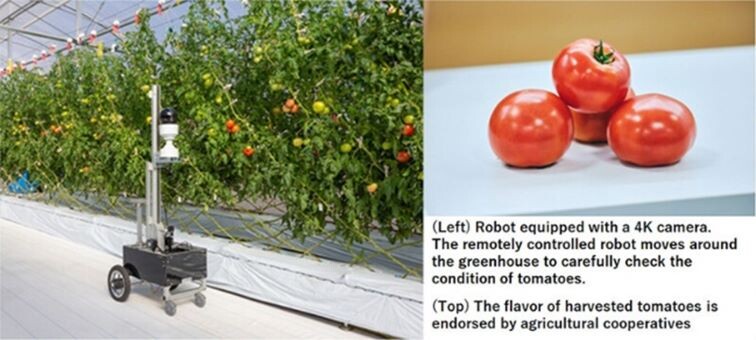
"This is a great opportunity for people to learn about the existence of smart agriculture from an early stage. Agriculture is still viewed as a tough industry by many people in Japan--an example where agriculture is viewed as a cool as well as lucrative industry is the Netherlands, which is far advanced in smart agriculture.
I explained this to students who come to visit for their field trip. When I asked them "Who thinks they want to try working in agriculture?" almost half the class raised their hand. And just the other day, we received a call from a junior high school student in Tokyo with a request to conduct a field trip because they were interested in smart agriculture. That call made me very happy."
To ensure a reliable level of profitability for the future generation of workers like these, agriculture must be made into an industry that offers greater profits and revenue. Mr. Nakanishi says that one of his aspirations moving forward is to optimize the entire supply chain.
"To create a system that is profitable, we need to create a method that distributes the 'value of production' to 'consumers.' To achieve this, I want to utilize data throughout the entire process, from upstream to downstream, and hopefully be involved in optimizing the entire supply chain."
Taking mutually beneficial culture to the future with technology
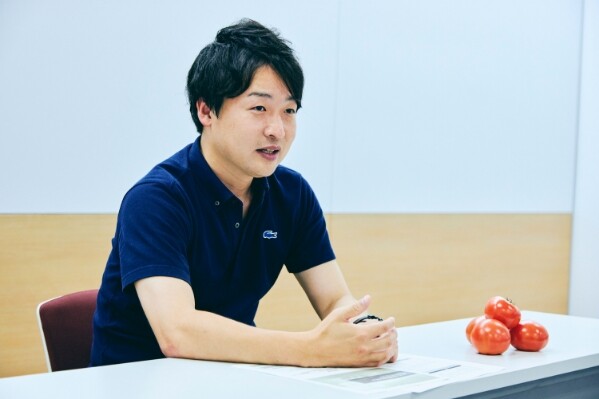
Mr. Nakanishi is focusing on this project as a sort of regional hub that brings together local governments, farmers, agricultural cooperatives, schools, and many more. The moment that changed his way of thinking about agriculture was an IoT project for grape farmers in Yamanashi Prefecture, which was one of the first he was in charge of since becoming involved with smart agriculture.
"Seeing how all the farmers work together to cultivate grapes as a whole community was a truly inspirational moment for me. In most industries, other businesses are normally your own competitors. Yet the farmers were so proactive in sharing their own knowledge regarding IoT with other farmers. In fact, the approach of sharing their own techniques and positive results with others to raise their overall quality helps to establish regional branding, which in turn ends up increasing their own profits. Agriculture is certainly a type of 'culture' where knowledge should be imparted to those will be in charge in the future.
My aim is to support this transmission of culture of agriculture with the capabilities of technology. I believe that this will be possible owing to the fact that I am part of NTT EAST, which has established strong ties with local communities over the years."
Sustainability
NTT STORY
WEB media that thinks about the future with NTT



